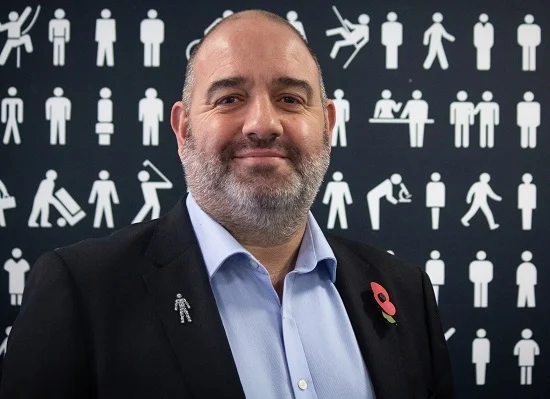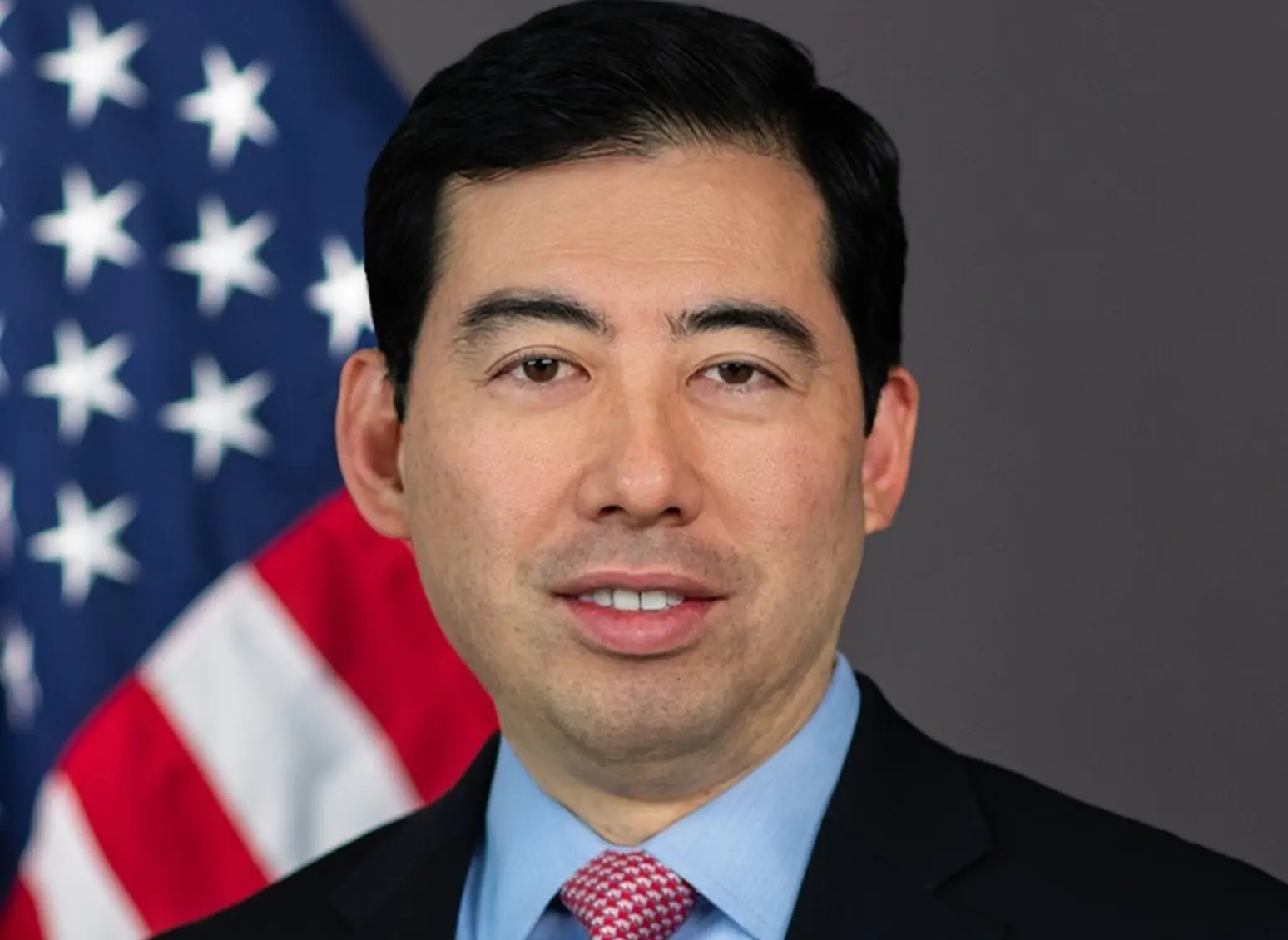
Pettit only discovered he had prostate cancer after a random medical when he was joining ICAP from MF Global
Gary Pettit has in the past 30 years built a reputation as one of the best and best-known brokers in London yet the ED&F Man commercial director has in recent years taken on the role of ambassador for Prostate Cancer UK, drawing on his own experience after he was diagnosed with prostate cancer in 2012.
Gary is now one of the many public faces working hard to raise awareness and funds for the fast-growing British charity, using his own experience of surviving cancer to inspire other men to get themselves checked out.
His story is exceptional. Gary only discovered he had prostate cancer due to a random medical when he switching jobs, without which he probably would not have known about the disease until it was too late. And he only switched jobs because the company he had previously been working for (MF Global) went bankrupt, leaving him and his team seeking a new home.
Mindful of how lucky he was, Gary is working hard with Prostate Cancer UK to ensure more men like him do not need luck in the future.
Speaking to Global Investor, Gary, currently the commercial director and global head of financial futures and options at ED&F Capital Markets, reflects on his relationship with prostate cancer which started in late 2011.
He said: “It all came about when I left MF Global to join ICAP in 2012. We were shifting a lot of brokers and, for one reason or another, they asked me to do a medical.”
Gary was the global head of financial futures and options at MF Global when that broker went bankrupt on October 31 2011.
Pettit and his financial futures and options broking team were among the best in London so it was perhaps only a matter of time before they found a new home. In typically opportunistic fashion, ICAP offered the best terms so Pettit and his team starting moving to the London-based inter-dealer broker from December 2011.
As part of the move, ICAP was asked Gary to do a medical, which was then and remains today fairly unusual.
Gary, who was 43 and “fit and healthy” at the time, said: “I’d not had one for a good few years but it was something that I wasn’t too worried about. I was happy to do it so I went and had the medical. They did a blood test and this showed that my PSA (Prostate Specific Antigen) levels were very high.”
Pettit, perhaps like most men in that situation, was not overly worried: “I didn’t think anything of it at the time, partly because I didn’t know what PSA levels were. From there I was referred to a specialist who did more tests and took some samples and things like that. I got a call about two weeks later sitting at work from the specialist who said: “All your checks have come back and you’ve got prostate cancer.”
Through the efforts of people like Pettit, his fellow ambassadors and the team at Prostate Cancer UK, there is more awareness of prostate cancer now but, as little as eight years ago, ignorance was the norm.
Pettit said: “That completely blew me away, partly because I didn’t know what prostate cancer was - I didn’t even know where the prostate was.
“I felt awful, I was shocked and then, of course, you’ve got to tell the family. And then there are the questions: Has it spread anywhere? What do you know about it? That was tough but, being pragmatic, you’ve got to go and deal with the situation.”
Pettit said he decided to “face it head on” and immediately engaged with the specialists over what were the options for treatment.
“So I went to see a specialist who said these are the alternative treatments: so you can go radical and have a prostatectomy, which is basically where it all comes out, radiation treatment or a high-frequency treatment that was only just coming out at that time.”
He continued: “I chose to the radical options to have it out, which was probably lucky in hindsight. When I first went to the hospital, they said to me three of the eight samples I gave were cancerous. Three weeks later when I went into the hospital to have the operation, all of the samples I gave were cancerous.”
The implication was that, with the cancer developing fast, Gary was very lucky that the problem was identified before the cancer had spread to other organs, which might have been terminal.
He continued: “I’d already made the decision what type of treatment I was going to have but when you hear that, you know that was the right decision. I don’t think I could’ve had a different treatment.”
Ultimately, Pettit chose to have a prostatectomy because “it was the only way in my mind that I would have closure”.
The procedure, as with other forms of prostate cancer treatment, has evolved radically in recent years and continues to evolve, largely thanks to the efforts of agencies like Prostate Cancer UK.
Gary underwent in 2012 an eight hour operation using numerous robotic arms being controlled by a surgeon working on a screen.
“The surgery went well and the surgeon said he was very pleased with it. The surgeon was guy called Chris Ogden who is one of the pioneers of robotic surgery specialising in prostate cancer. At that time, he was doing six or seven of these a week and that was back then.”
The procedure took place at the Royal Marsden Hospital in Chelsea where he rested up for two days before heading home to deal with the side-effects.
He said: “To be honest, it’s not the nicest, you have to deal with all kinds of problems but these are the things that men don’t talk about. It is a nightmare but, no matter what side-effects there are and I’ve had a few, I would still make that decision.”
One major side-effect of a prostatectomy is infertility and this was discussed before the operation. “We took a decision at the time and that has come to fruition and I now had a two year-old, which is wonderful. Again, that was my naivety. I didn’t realise that was a side-effect. I was 43 at the time so it was unlikely that I was going to have any more but at least we had the option.”
Speaking to Gary, it is obvious the effects of the operation were tough: “Funnily enough, it is the side-effects that actually turn a lot of men off from having it done.”
But he is quick to stress that the side-effects differ depending on the treatment and advances in medical science mean the effects are becoming less problematic over time.
He said: “The treatments are evolving fast. I spoke recently at the British Medical Institution and there were four professors there each talking about a different forms of treatment.”
Gary went on to stress the importance of decisive intervention when faced with a disease like cancer than can spread rapidly.
I heard some horror stories in there where people had waited four or five months because they were nervous about it and weren’t sure what to do by which time it was too late,” he said.
Prostate Cancer, like all cancers, is a genetic disease. Currently, more than 11,500 men die from prostate cancer every year in the UK, which is one man every 45 minutes.
Amazingly, one in eight men will be diagnosed with prostate cancer in their life, while the chances for black mean are even shorter at one in four. Men over 50 are most at risk and this risk increases with age.
A family history of prostate cancer is also a sign.
Gary said: “For me, I shouldn’t have been surprised that I got it. My Mum’s Mum and Dad both died of cancer within six months of each other. My Uncle died of prostate cancer and my Dad, although he didn’t die of bowel cancer, he had bowel cancer when he died.
“For me, it wasn’t a surprise that I got it, rather the surprise was the age. The guidance is that it’s men over 50 that are most susceptible to prostate cancer but, as part of my work, I travel round and meet men who have it and I met a couple of weeks ago a lad who is just 22 and he’s got it. I don’t think it really matters what age you are, which is why it is so important to raise awareness.”
One challenge with prostate cancer is that most men in the early stages of the disease do not have any symptoms.
Pettit said: “For me there were no symptoms so I had absolutely no idea. I was fit and healthy. I’d never had any health problems so I was so lucky that I had to go for a medical which I would not have had if I were not moving jobs. The specialist told me that, with the aggression of the cancer, another three to six months and it would have been all over the place.”
He continued: “I’ve lost people who were close to me who knew nothing about the fact they had cancer and then it was all over the place and they were gone. I was very very lucky.”
And this brings us to the lesson.
“The message for men is simple: get yourself checked. There isn’t a screening programme and I have heard many times that doctors are hesitant to refer men under 50 but you can have it. The PSA check is not bullet-proof but it will give you half a clue if something is wrong.”
Gary said the initial test, which is basically a blood test, will give you a good idea. If the PSA levels are raised then you’ll go away and have further checks.
“From the charity’s point of view, they would like a complete national screening programme within five years and that is where a lot of their efforts are going,” he said.
But Prostate Cancer UK feels the test used today are not good enough on their own for a screening programme so it is investing millions to try to find a more reliable test.
Pettit is quick to acknowledge the excellent work that Prostate Cancer UK has done in just a few years to raise awareness about this disease.
“I didn’t know who they were before I got it but now they are everywhere, you see the banners and the adverts of the television. You see all the guys on Sky Sport wearing the badges for example,” he said.
“The badges are huge. I wear one wherever I go and people are always stopping me to ask: “What’s that badge for?”
As a high-profile figure in an industry dominated by men, including many in their 40s and 50s, Pettit is using his experience to convince more men to get themselves testing.
He reflects: “Anything to do with this isn’t pleasant and any symptoms after aren’t that pleasant either but the reality is you’re alive. Looking back, I had a massive let-off. The medical when I joined ICAP was the very thing that saved my life, it’s amazing when you think about it.”


